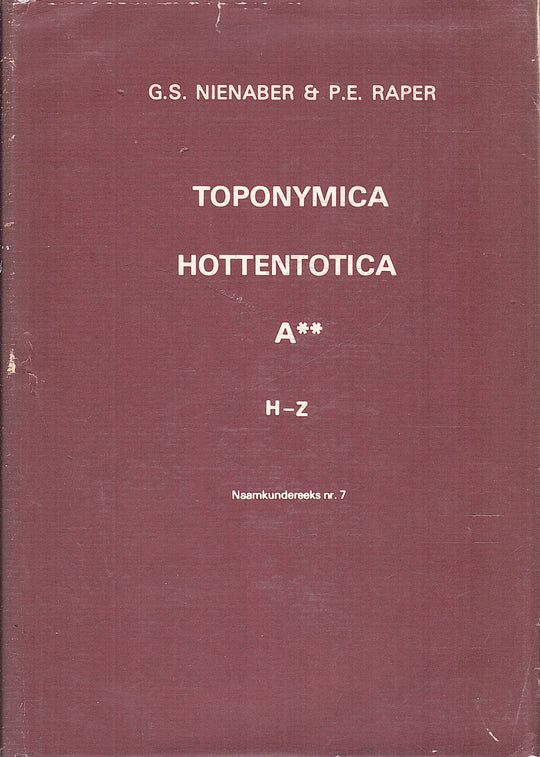Pauga
The name, just recorded here, is deciphered differently. In Moodie's Records 1 435 it appears as 'XARTGA, HAVING ABOUT 80 MORGEN or FINE GROUND,' and in Mossop's transcript VRV 12 223 as Xauga. The latter with the X is just; Also Schrijver's Xhaeruh (our Karoo) is located by Molsbergen (definitely wrong) as Phaeruh, but the stemalhead is -au- and not -a (N) - not, and therefore not to identify with Cango (Via Xanga) ( Pettman SAWN 26). Mossop has established: 'The Present Daskop and Buffalo Drift On The Kamanassie R. Fit The Description Given of Xauga Which is Probably From ǀ Gaob (= Cgoab), The Blaauw Wildebeest ...' Dr Mossop has O.I. selected a good point of departure. Over and over it turned out that many Afrikaans names returned to a Khoekhoen's older name. Xauga is the current Daspoort or Buffelsdrif, and Mossop sees a possible link between Nama ǀ Gaob = wildebeest, also buffalo, and the XAU of the place name. It is not his fault that he did not know Old Cape, otherwise he could have laid directly with 'buffalo' (Hott 235) where it appears (in the eastern dialects) Kaw, T'kau, ǀ ka -oo-p etc. The -ga is like Nama -Xa, the suffix that is about with AFR. '-Ry' equals of phonetic objections.




